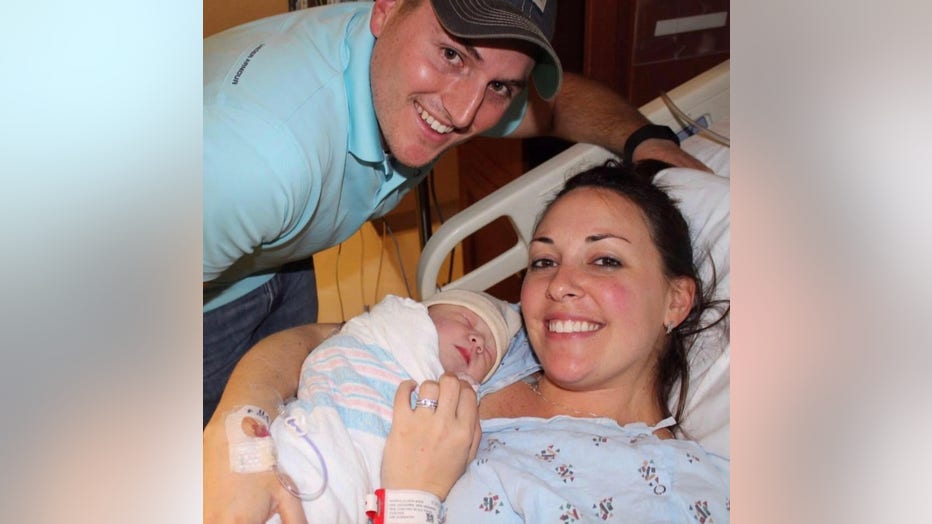Georgia woman faces thyroid cancer diagnosis during her pregnancy
Woman faces thyroid cancer diagnosis during her pregnancy
Allison Murphy was thrilled to get pregnant in 2016. But, when the Georgia mother was 35 weeks along, she was told she may have thyroid cancer, and needed surgery as soon as possible.
ATLANTA - When Allison Murphy got pregnant in 2016, after years of trying, she and her husband could hardly believe it.
"It was a miracle," Murphy remembers. "It really felt like a miracle, like we were given a gift."
Throughout her pregnancy, doctors kept a close eye on Murphy's neck.
They were watching her thyroid gland, a butterfly-shaped gland on the front of the next that secretes hormones that regulate the body's metabolism.
"I had a thyroid nodule," she says. "It was right here. I looked like a girl who had an Adam's apple. It stood out, like a knot in my throat."
After 8 years of regular but benign biopsies, when Murphy was about 35 weeks pregnancy, her endocrinologist asked her to come in.
That is when she learned her most recent biopsy had come back inconclusive, but suspicious for cancer.
She was referred to a surgeon, who recommended taking out her thyroid as soon as possible.
"I just looked at my belly and was like, 'I can't have my thyroid out by the end of the year, I'm about to have my baby," Murphy says.
Lumps in the thyroid are usually benign, or not cancerous.
But the American Cancer Society says there may be warning signs of thyroid cancer, including a lump in the neck that seems to be growing quickly, swelling in the neck, or pain in the front of the neck that can stretch up to the ears.
Other signs include hoarseness, voice changes, trouble swallowing or breathing, or a constant cough that is not caused by a cold.

(Allison Murphy)
Dr. Carmen Elisa LeBlanc at Piedmont Healthcare, Murphy's endocrinologist, says it is important to watch for a sudden change in your thyroid gland.
"If you notice you have a bump there, and it's growing rapidly," Dr. LeBlanc says. "So, if you notice the bump and then a month later, it's twice the size, or your voice is changing, or you're having difficulty swallowing, those require a quicker, prompter evaluation."
Dr. LeBlanc has had other pregnant patients with thyroid cancer.
"Generally, we assure them that this is very treatable," she says. "The main thing is to get the thyroid out."
Three months after Murphy gave birth to her daughter, she underwent surgery to remove her thyroid.
Test showed the nodule was cancerous.
Shortly after her surgery, she began radioactive iodine treatment, which meant she had to stop breastfeeding her baby.
"That, unfortunately, doesn't happen because of the increased risk of the baby absorbing some of the radioactive iodine, and it's affecting its thyroid, and ultimately then destroying its thyroid," Dr. LeBlanc explains.
Not being able to breastfeed, Murphy says, was the hardest part of her cancer journey.
She also had to separate from her family for a week because she was considered radioactive.
Today, Murphy is six years out, and cancer free, and the mother of a healthy daughter.
She is grateful her cancer was detected and treated early, before it had a chance to spread beyond her thyroid.

